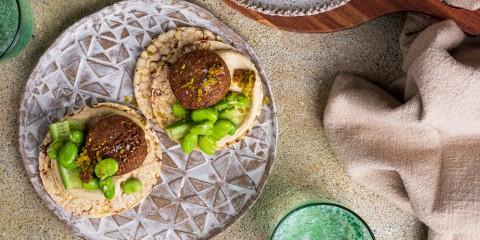The Link Between Your Gut Microbiome and Cancer Risk

Cancer is the second leading cause of death in the world behind heart disease. The importance of understanding what factors can reduce your risk of developing cancer is hence important. One factor you may not have considered is the composition of your gut microbiome and risk of developing cancer.
Your gut microbiome is defined in the Encyclopedia of Cell Biology as ‘the collection of microorganisms including bacteria, archaea, viruses, and fungi found within the gut and their overall genetic information.’ Everyone has a different diversity and number of different microorganisms. Your gut microbiome is as unique to you as your fingerprint. One factor which influences your unique gut microbiome is your diet.
Research has investigated the link between different types of microbes with risk of developing cancer. Healthy people were found to have a gut microbiome made up of approximately ten percent from the classification of microbes called phyla groups called Verrucomicrobia and Proteobacteria. The remaining ninety percent was from the phyla of Firmucutes and Bacteroidetes.
Ten percent of the incidence of cancer in the world is suggested to be influenced by the oncobiome. The collection of microbes linked to an increased risk of cancer called the oncobiome. Using colorectal cancer as an example, the species which have been recorded in high numbers in the gut microbiome in those with colorectal cancer include Bacteroides clarus, Roseburia intestinalis, Clostridium hatheway, Fusobacterium nucleatum, Parvimonas micra, and Solobacterium moorei.
In addition to this imbalance genera which are seen in low abundance in those with colorectal cancer include Escherichia, Citrobacter, Shigella, Flavobacterium, Acinetobacter, and Chryseobacterium genera and species Lachnospiraceae, Bifidobacterium animalis, and Streptococcus thermophilus. These microbes promote inflammation in your gut which is one factor which increases your risk of developing colorectal cancer. In addition, they do not produce the short chain fatty acid metabolite called butyrate which has anti-cancer promoting properties.
Your gut microbiome is as unique to you as your fingerprint and everyone’s optimal microbiome balance is slightly different. Saying this, there are key varieties of microbes linked to health as mentioned above.
There are many lifestyle factors which influence your gut microbiome. One major factor is your diet. Research links a diet which is rich in whole grains, fiber, fruits, yoghurt, extra virgin olive oil, and vegetables to a lower risk of cancer. In comparison, a diet which is high in animal products and the traditional ‘western style diet’ which is high in processed foods, animal saturated fats, red meat, and low in fiber to increase your risk of cancer.
A lifestyle factor which promotes health promoting microbes in all individuals includes eating variety of different plant-based foods each day. This includes foods such as whole grains and whole grain contain foods like Corn Thins slices, nuts, seeds, legumes, beans, vegetables, and fruit.
Each of these different types of foods feeds the health promoting microbes in your gut different fuel sources such as prebiotic fiber and polyphenols. Prebiotic fiber is a type of non-digestible carbohydrate which are fuel sources for the health promoting microbes which live in your gut. A gut loving goal can be to include thirty different plant-based foods a week.
Take home message: While no one single factor can eliminate your risk of developing cancer your gut microbiome appears to play a critical role in influencing your risk.
References:
1. Kapsetaki, S.E., Marquez Alcaraz, G., Maley, C.C. et al. Diet, Microbes, and Cancer Across the Tree of Life: a Systematic Review. Curr Nutr Rep 11, 508–525 (2022). https://doi.org/10.1007/s13668-022-00420-5
2. Encyclopedia of Cell Biology. Volume 2, 2016, Pages 799-808The Gut Microbiome. H.Neuman, O.Koren. https://doi.org/10.1016/B978-0-12-394447-4.20083-7
3. Cancer. Our World